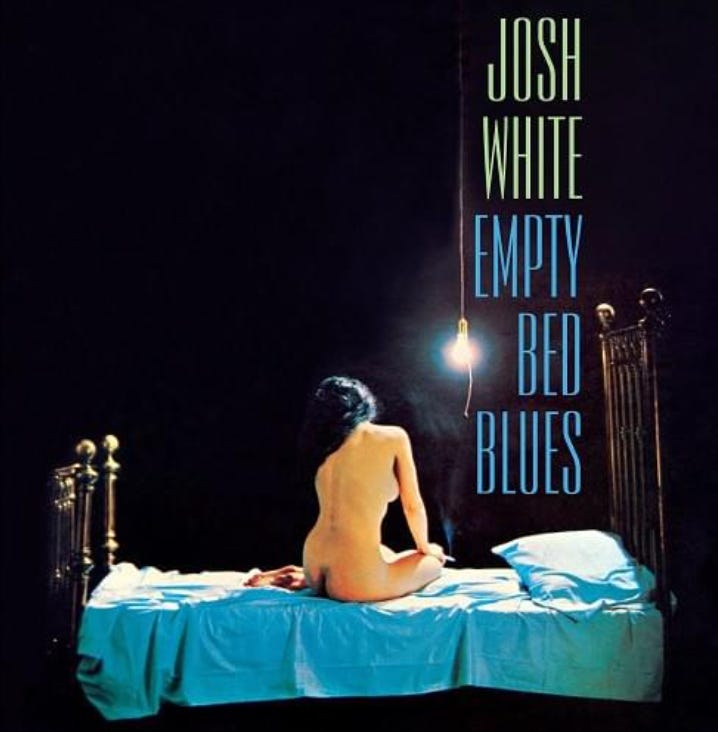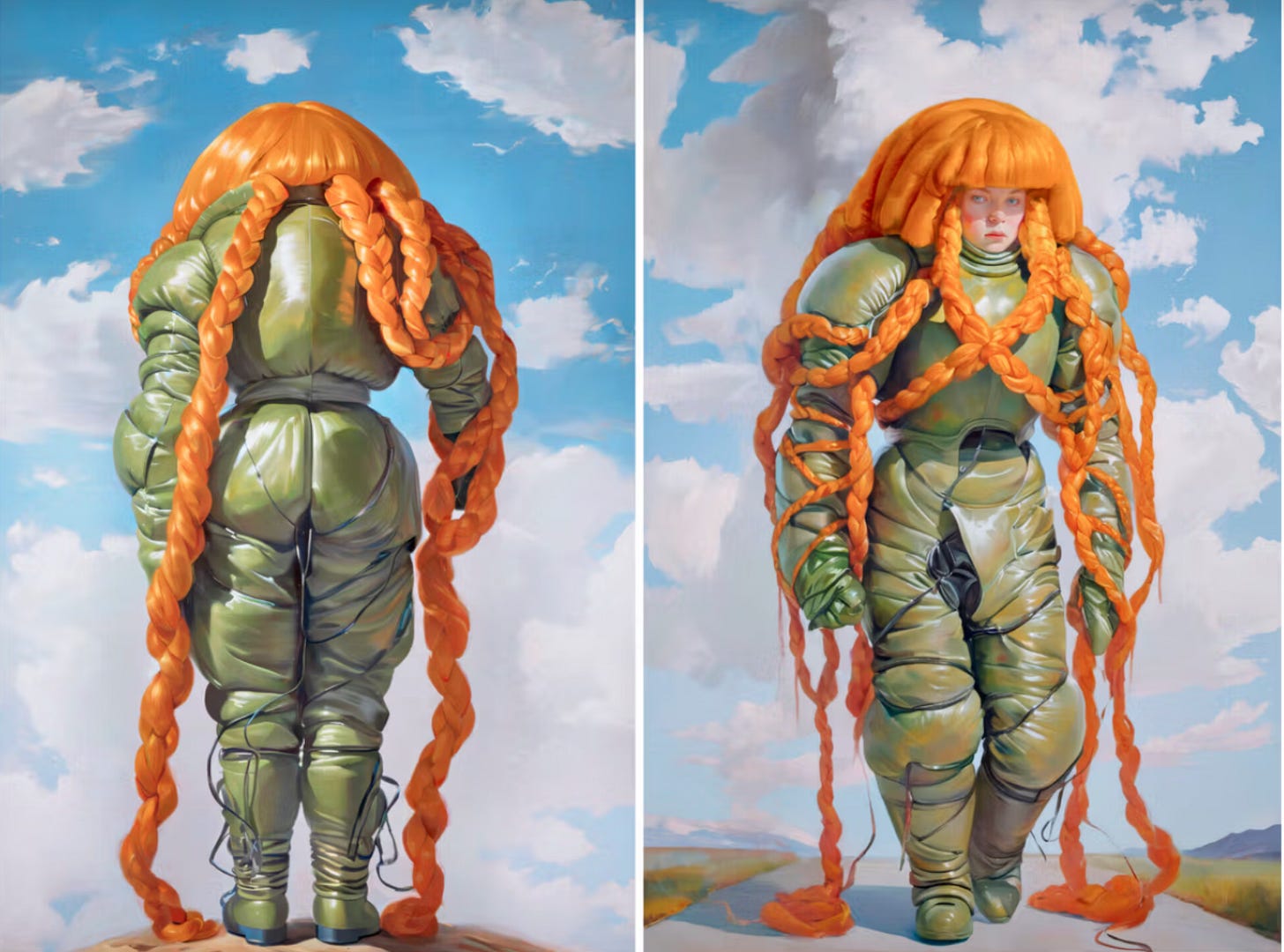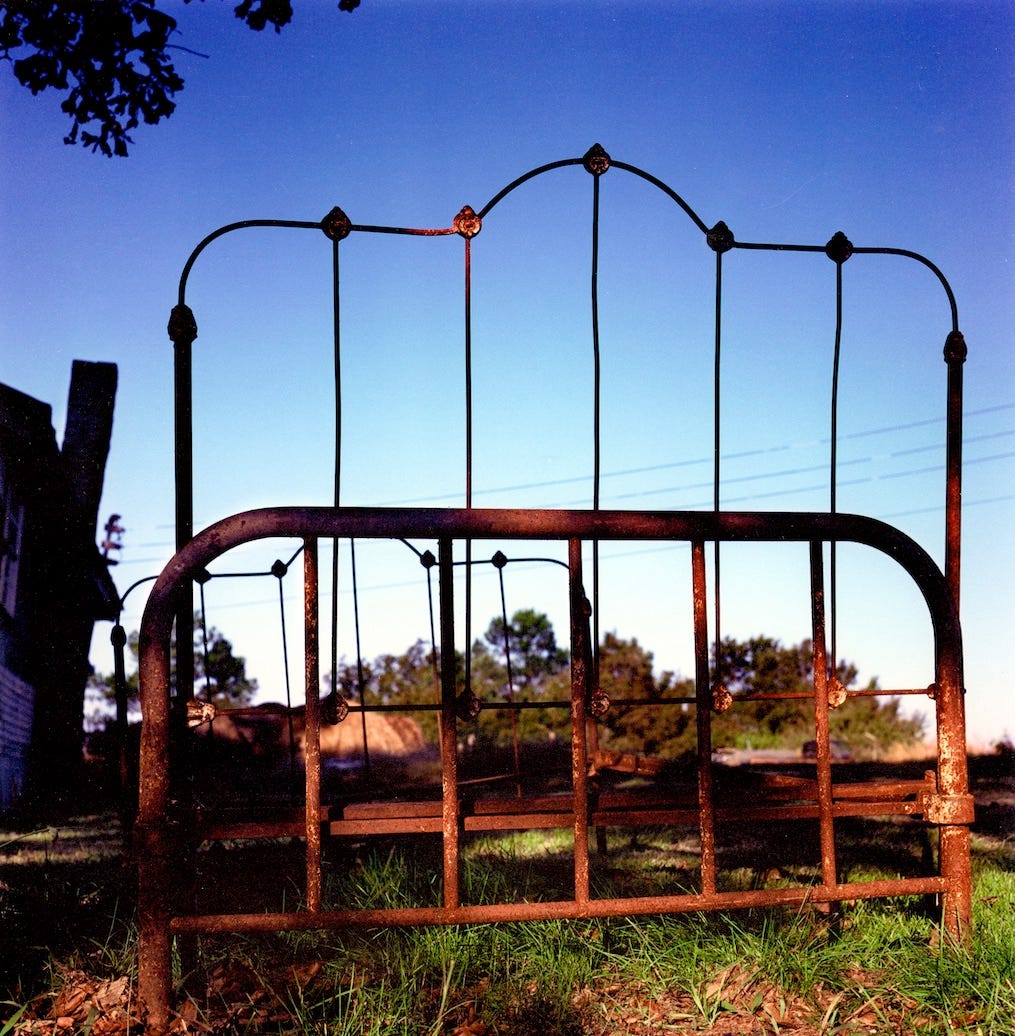It was a balmy, damp, sticky Taylor, Mississippi night, when after a feast of Crawdad Etouffee, my friends and I retired to the parlor to listen to some records. It was in the late 1990s and my traveling companions, Mississippi native John Foose and fellow Warner Bros. Records staffer Bill Bentley, had the blues on our minds, venturing from the Hills of Senatobia (where I first met Luther Dickinson and Otha Turner) to the catfish ponds of Pluto, Yazoo County (staying at the Foose family plantation) and finally to the beautifully restored antebellum home of Taylor mayor and photographer Jane Rule Burdine. Jane Rule cooked up a wonderful dinner, complete with a full complement of southern hospitality, before suggesting we dessert with music selections from her lifetime record collection. With a tall glass of Dewers and water, I put my feet up on an ottoman while she threw on a record, introducing it as music from a singer she had listened to as a young young girl.
The sound that came next made the candle flame dance, dance as when a child ever so slightly blows on it to try and command the form: a clean, warm ballet-picked guitar under a velvety, bluesy voice, more refined than most I had heard, the style of a lullaby singer with the musicality of a classical soloist. It was my introduction to Josh White and his record Empty Bed Blues. It was not unprecedented that I had not heard the music of Josh White: for various reasons he was not highly regarded by blues purists and never spoken in the same breath as Robert Johnson, Muddy Waters or Mississippi Fred McDowell. But there was something about his unique approach that deeply resonated with me, and started me on a journey to learn more about him.
Josh White’s life story blew my mind. Born today, in 1914 (happy 111th birthday Josh!), Josh was a mere 7 years old when he left home for the blues highway, paid to help blind street musicians pass the hat as they crisscrossed the country. These were not just any musicians, but legends like Blind Blake and Blind Joe Taggart. White, who already displayed natural musical abilities, soaked in their styles…soaked in any style he heard…and began to bake his own virtuosity. By the time he hit Chicago with Taggert in 1927 (he was just 13 at this point) he was good enough to play on Taggert’s Paramount Records sessions (you can hear Josh’s picking and young voice on Mother’s Love) becoming the youngest blues artist on the label (and in the blues community in general).
That was a start of a career that took him through the 60s. Except for a brief time in the mid-1930s, when he injured his hand severely enough that he feared he would never play again (luckily, he was only sidelined for a few years) White was one of those blues players that never stopped playing, that always found new audiences. After his hand healed, he went east to Harlem, was in a Broadway production with Paul Robeson where he played Blind Lemon Jefferson and started performing with legends such as Woody Guthrie and Lead Belly (whose tracks together are incredible, as exemplified with Don’t Lie Buddy and I’ve A Pretty Flowers). He was paired with the white “premier torch singer of Broadway” Libby Holman, becoming one of the first mixed race duos to tour together, which also helped White find a new audience, a white audience (one of the first blues players to do so). Later his song “Careless Love,” produced by the great John Hammond, broke the color barrier being the first race record played on white radio.
Thus, Josh White found his way into white “high-brow” circles, even becoming friends with Franklin and Eleanore Roosevelt….playing at his inauguration…asking Franklin to be godfather to his son Josh Jr (who recently passed away). Like Louis Armstrong, Josh White had found a new audience and was thriving. That is, until he was crushed under the post-war red scare that America embraced. White was always a protest singer and never backed down from being a protest singer…a singer with a deep agenda as to how the black community was treated in America; while hanging with the Roosevelts, he was also releasing records with titles like An Album of Jim Crow Blues. With the rise of McCarthyism, his protests were thought of as siding with Communists leading to an appearance in front of the legendarily evil House Ethics Committee. White did not name names, White declared that he was not a communist but was still black balled shortly after. There was also a perception that he did name fellow artists as communists. And thus, he was cut off from his fans, cut off from playing gigs, cut off from his American career.
White went to England, to Europe, and found a new career there, playing in front of packed crowds who had read about, but not heard, this incredible blues sound from America. White released how-to-play-the-blues songbooks, the first of their kind, inspiring the first generation of English blues players. And luckily for him, back in the states, right in the middle of his black-balled period, a young record executive named Jac Holtzman signed him to his very very nascent Elektra Records and started putting his recordings back into US record shops. One of the first being The Story of John Henry, one of my favorite of his recordings…a narration and a showcase of many classic old blues standards…it is one that I played during nighttime feedings when my kids were weeks old.
John F Kennedy brought White back to America, booking him to play his Dinner With The President CBS special. For the rest of his short life (he died in 1969 at 55 years of age), White was in the public eye, even playing at Lyndon Johnson’s inauguration. But during this short life, there are not many blues musicians who accomplished more, who participated in the birth of the recorded blues and helped the idiom evolve and find greater audiences, who broke down barriers and survived savage political knockdowns, whose recordings (in the hundreds) spanned five decades.
So why is he not thought of in the same way that Son House is thought of, or how Howlin’ Wolf is thought of? There are many reasons, the first being his style that he exhibited for much of his adult life: it is a more refined blues, a velvety living room blues, a blues that has been criticized for being too white. Josh’s legacy was also severely damaged by the McCarthy era, more because his fans mistook him as a traitor much as how they saw Beryl Ives as a traitor (which he was) while also seeing him as someone who left the black community behind for the elite white community that embraced him (again, like Louis Armstrong). But all one has to do is collect the records he made…especially the records he made from the 40s through the 60s. They are filled with songs of protest, of fist-in-the-air furies and calls for equality.
Since that night in Mississippi, I have collected a heap of Josh White records…was even lucky enough to reissue Empty Bed Blues on the Sepia Tone Records label I ran with friends Larry Hardy and Gary Held (featuring a photo by Jane Rule Burdine). His style IS UNLIKE ANY other blues style I have ever heard, and during dark times, is calming, uplifting, without forgetting the inspiration needed to enact world change. The Studs Terkel archives shows at least two interviews between Studs and Josh, one from 1955 (during his blackball period) and one from 1963. They have yet to be made public. I would give anything to hear them and learn more from the man himself about what it meant to be playing the blues—and just living—during that time in American history.
Happy Birthday Josh White! !! ! May I recommend celebrating it by watching this short video of him playing You Know Baby? SO SO SO good.
Thousands of Artists Demand Christie’s Cancels AI Art Sale: ‘AI Models Exploit Humans’
Part of the letter signed by 4000 artists: “Many of the artworks you plan to auction were created using AI models that are known to be trained on copyrights work without a license…These models, and the companies behind them, exploit human artists, using their work without permission or payment to build commercial AI products that compete with them…Your support of these models, and the people who use them, rewards and further incentivizes AI companies’ mass theft of human artists’ work. We ask that, if you have any respect for human artists, you cancel the auction.”
“I’m a Woman, Darling”: The Life and Times of Warhol Superstar Holly Woodlawn
“Holly had a very endearing personality and a great sense of humor. She was warm and compassionate. But ironically, she was also conniving. She was a thief. She did drugs and impersonated a French diplomat’s wife to go into the UN building and withdraw like, $2,000 from her account, which she got away with the first time. Then she decided to go back for another haul and was arrested. So on the night of her big movie premiere, she was in prison. I don’t know of any other Warhol superstar who had that kind of trajectory.”
Centennial Wins Grammys for Best Historical Release and Best Album Notes
Centennial, the out-of-this-world release by Archeophone Records of the remastering of King Olivers complete 1923 recordings are a thing to behold. Yes, the songs probably sound best on the original 78s played on the right player. But this release offers an amazing other way towards enjoyment. Meticulously restored recordings…with barely (if any) surface noise while maintaining the low/middle/high range eq beauty brings out the true excitement and genius of King Oliver and his band. And yes, Ricky Riccardi’s notes uplift, educate…and go deep. This release should be in every collection, taught in every school, celebrated for how good it really is. You can buy it here, from the people who made it.
“I Lost A Part Of My Personality”: The Pain Of Losing Your Entire Record Collection In A Wildfire
So many stories like this one. As discussed in a recent Signal, it really does put into question the sanity behind collecting “things.”
Sex, drugs and underlying health issues: The crippling cost of insuring old rockers
If you do not feel like wading through the bendable firewalls, check this out: “So if the fee for performing is £100,000, then the DJ pays £1,500 for the policy. This rises to around 3 per cent for a band with multiple members. But for older artists in their seventies and above, the insurance can cost between 10 and 15 per cent of their performance fee, meaning up to £15,000 of their £100,000 income. For a big band earning £3 million for a stadium show, that’s an eye-watering £450,000 spent on insurance.”
The Climate Is Changing. How Should the Liberal Arts Respond?
This is an interesting read with enough different perspectives to get the brain working. Art can and will push larges groups of people towards a more healthy outlook on the world…and it does seem at the moment that the climate situation is so large…so impossible to grasp…that the more ideas floating out there, the greater possibility to find the right one.
Remembering Fire
By: Rodney Jones
Almost as thought the eggs run and leap back into their shells
And the shells seal behind them, and the willows call back their
driftwood,
And the oceans move predictably into deltas, into the hidden
oubliettes in the sides of mountains,
And all the emptied bodies are filled, and, flake by flake, the snow
rises out of the coal piles,
And the mothers cry out terribly as the children enter their bodies,
And the freeway to Birmingham is peeled off the scar tissue of fields,
The way it occurs to me, the last thing first, never as in life,
The unexpected rush, but this time I stand on the cold hill and watch
Fire ripen from the seedbed of ashes, from the maze of tortured glass,
Molten nails and hinges, the flames life each plank into place
And the walls resume their high standing, the many walls, and the rafters
Float upward, the ceiling and roof, smoke ribbons into the wet cushions,
And my father hurries back through the front door with the box
Of important papers, carrying as much as he can save,
All of his deeds and policies, the clock, the few pieces of silver;
He places me in the shape of my own body in the feather mattress
And go down into the soft wings, the mute and implacable country
Of sleep, holding all of this back, drifting toward the unborn.















I first heard Josh White very early in my listening life, in 1963, age 12. The great Chicago classical music station, WFMT, was noted for many things, among them Studs Terkel’s daily Wax Museum program, and weekly Almanac, and also a Saturday night show, The Midnight Special, which was billed as an “aberration,” broadcasting folk music, blues, Broadway, and comedy records. Mike Nichols created the show in the early 50s but by the time I was listening it was hosted by two very knowledgeable presenters who were also part of the station management. This was the first program in Chicago radio to play Bob Dylan, among many others. The hosts of the Midnight Special had no issues with playing artists who were victimized by the blacklist: particularly Pete Seeger and the Weavers but also Josh White. The key record for me was Josh At Midnight, with One Meatball, Timber, Jelly Jelly, etc—to this day a late night album unlike any other. Though I was too young to catch Josh at Chicago nightclubs like the Gate of Horn, I attended his concerts at the summer Ravinia Festival. He had this trick of lighting a cigarette, taking a puff or two, then sticking it, while lit, behind his ear like a pencil. An avatar of cool.
More than a dozen years later, while producing a music special about Woody Guthrie for Chicago Public Television, I had a chance to speak with Studs Terkel and Pete Seeger about the blacklist. While Studs was quite angry and unforgiving of Burl Ives for “naming names,”he had no such criticism of Josh, and as you pointed out, had interviewed him on his radio program. Those shows indeed have not been posted online, but a short clip from 1960 with Josh and his sidekick Sam Gary can be found here:
https://studsterkel.wfmt.com/programs/sam-gary-and-josh-white-discuss-folk-music-and-their-careers
As a final note, Josh’s son, Josh Jr., a fine and well-established musician in his own right, passed away at the end of last year, age 84. I appreciate you celebrating Josh Sr.’s legacy. Thank you.
As a footnote to your Josh White coverage, great work to shine alight his way! It's my understanding that Josh and Bing Crosby were to portray Lead Belly and John Avery Lomax but the war came along. I had dinner with Josh White Jr. but his manager talked the whole night and Josh barely got in a word.